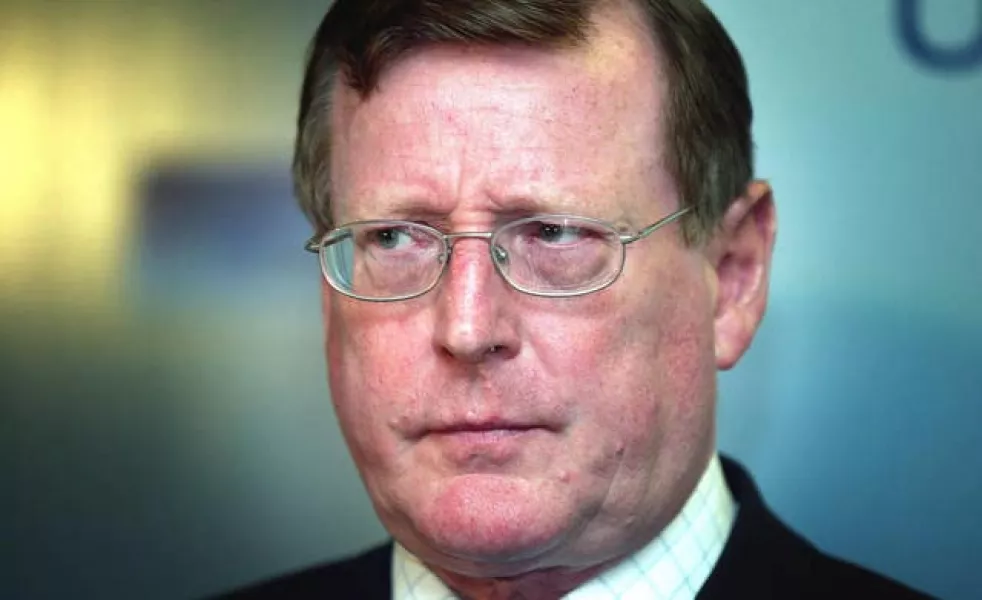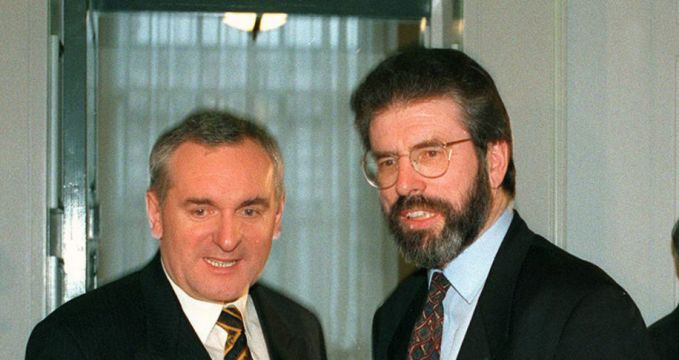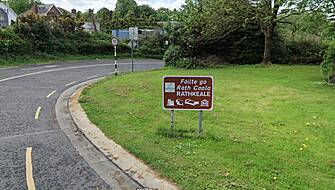Gerry Adams and Bertie Ahern hoped “some good” might emerge from the trauma of the Omagh blast in 1998 amid efforts to progress the peace process.
It came amid a growing sense of urgency to advance the peace process after the Good Friday Agreement, amid tensions over decommissioning and demands that the IRA declare that “war is over”.
In a telephone conversation between the Sinn Féin leader and the taoiseach after the bombing, which caused the single greatest loss of life of the Troubles, Mr Adams spoke of the “absolutely desperate” situation.
“I’m not in good form but, sure, who is,” Mr Adams told the taoiseach.
“I’ve got probably no right to be in bad form when you think of what the families are going through.”
Mr Adams and Mr Ahern agreed on the call to speak in person soon, with the Sinn Féin leader expressing hope that “out of all the turbulence will come some good, we will work at it”.
“Obviously it has to involve (UUP leader David) Trimble because there is no point in us going on fishing expeditions,” he said.
Mr Ahern said he hoped there was an “opportunity” to make progress amid the tragedy, and told the republican leader he believed Mr Trimble had Mr Adams “wrong”.

“He was of the sense that you want to do these things but that you will do them incrementally over such a long period that it will be lost”, Mr Ahern said.
“Now, I mean, that is not the sense that I have from you at all.”
At the end of the call, after a discussion on the next steps in talks, Mr Adams asked the Fianna Fáil leader if he was planning to speak to British prime minister Tony Blair.
“I am,” Mr Ahern replied.
“He has been trying to get me since nine o’clock, and I have been dodging him, so I will talk to him now.”
The preceding months had seen wrangling between the Irish and British sides and Sinn Féin over a form of words that would make clear that the “war is over”.
An IRA statement in April 1998 said: “Let us make it clear that there will be no decommissioning by the IRA.”
The issue preoccupied Mr Ahern and Mr Blair for months, with the Omagh bombing adding a greater sense of urgency amid fears over the need to keep the recently signed Good Friday Agreement afloat.

A confidential Irish government note of a meeting between Mr Ahern and Mr Blair on August 16th, the day after the bombing, records that Mr Blair argued that “the key thing was for Sinn Féin and the IRA to have credible distance from the small dissident splinter group”.
“Moderate unionists needed to be convinced that Gerry Adams – contrary to what a lot of them believed – was not behind the dissidents in some way,” the note records Mr Blair as arguing.
That discussion focused on determining a “form of words” that would allow the peace process to progress.
In October 1998, Mr Blair described a one-on-one meeting with Mr McGuinness as “going round and round in circles”.
According to an Irish summary of a British read-out of meetings between Mr Blair, Mr McGuinness and Mr Trimble, Sinn Féin had “offered nothing new and had made clear that Sinn Féin had no room for manoeuvre, whether in terms of an act of decommissioning, a timetable or an ‘explosion in the woods'”.
The Irish Government document notes: “The Prime Minister told the Taoiseach that he did not understand how the IRA could object to ‘an explosion in the woods’ which after all, would not require them to issue any statement.”
“The Taoiseach did not dissent but observed generally that the IRA feared that, if they were to do something on decommissioning, the Unionists would simply erect some other obstacle.”







